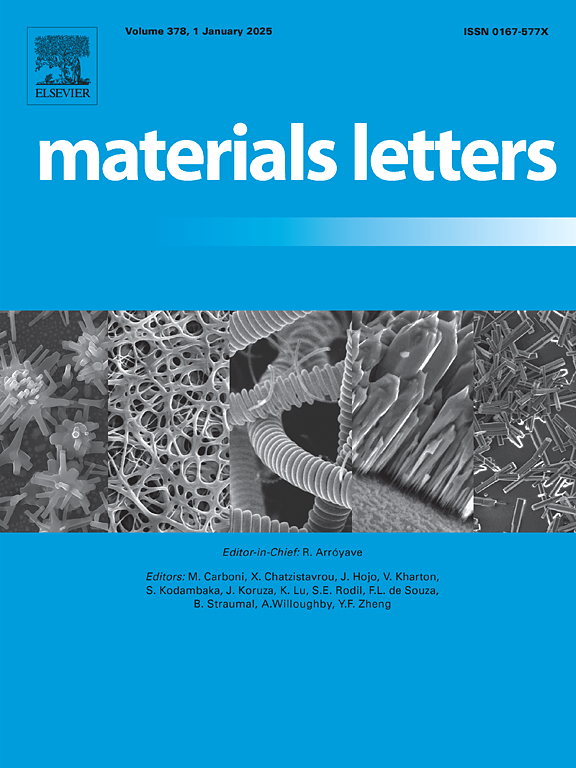Unmixing inducing polymerization of a sodium-molybdenum borosilicate network
IF 2.7
4区 材料科学
Q3 MATERIALS SCIENCE, MULTIDISCIPLINARY
引用次数: 0
Abstract
Glass network polymerization critically influences rheological behavior and with it the kinetics and dynamics of nuclear waste immobilization. Molybdenum-bearing borosilicate melts may undergo unmixing and rheological changes, which is dominantly controlled by the associated chemical modifications of the melt network. Here, we obtain in-situ (500–940 °C) Raman spectra to probe structural changes of a sodium-molybdenum borosilicate melt undergoing unmixing. The extraction of alkali and molybdenum to form droplets induces polymerization of the residual borosilicate network. Conversely, the opposite phenomenon is observed during droplet re-dissolution. This work provides new insights into the polymerization of a molybdenum-bearing borosilicate composed of two composition sets due to a miscibility gap and has direct contributions for the immobilization of nuclear wastes.
析混诱导聚合的硼硅酸钠钼网络
玻璃网聚合对核废料固定化的动力学和流变性能产生重要影响。含钼硼硅酸盐熔体可能发生解混和流变变化,这主要是由熔体网络的相关化学修饰控制的。在这里,我们获得了原位(500-940°C)拉曼光谱,以探测分离过程中钠钼硼硅酸盐熔体的结构变化。碱和钼的萃取形成液滴,引起残余硼硅酸盐网络的聚合。相反,在液滴再溶解过程中观察到相反的现象。这项工作提供了新的见解,以聚合含钼硼硅酸盐组成的两个组成组由于混相的差距,并有直接贡献的固定化核废料。
本文章由计算机程序翻译,如有差异,请以英文原文为准。
求助全文
约1分钟内获得全文
求助全文
来源期刊

Materials Letters
工程技术-材料科学:综合
CiteScore
5.60
自引率
3.30%
发文量
1948
审稿时长
50 days
期刊介绍:
Materials Letters has an open access mirror journal Materials Letters: X, sharing the same aims and scope, editorial team, submission system and rigorous peer review.
Materials Letters is dedicated to publishing novel, cutting edge reports of broad interest to the materials community. The journal provides a forum for materials scientists and engineers, physicists, and chemists to rapidly communicate on the most important topics in the field of materials.
Contributions include, but are not limited to, a variety of topics such as:
• Materials - Metals and alloys, amorphous solids, ceramics, composites, polymers, semiconductors
• Applications - Structural, opto-electronic, magnetic, medical, MEMS, sensors, smart
• Characterization - Analytical, microscopy, scanning probes, nanoscopic, optical, electrical, magnetic, acoustic, spectroscopic, diffraction
• Novel Materials - Micro and nanostructures (nanowires, nanotubes, nanoparticles), nanocomposites, thin films, superlattices, quantum dots.
• Processing - Crystal growth, thin film processing, sol-gel processing, mechanical processing, assembly, nanocrystalline processing.
• Properties - Mechanical, magnetic, optical, electrical, ferroelectric, thermal, interfacial, transport, thermodynamic
• Synthesis - Quenching, solid state, solidification, solution synthesis, vapor deposition, high pressure, explosive
 求助内容:
求助内容: 应助结果提醒方式:
应助结果提醒方式:


